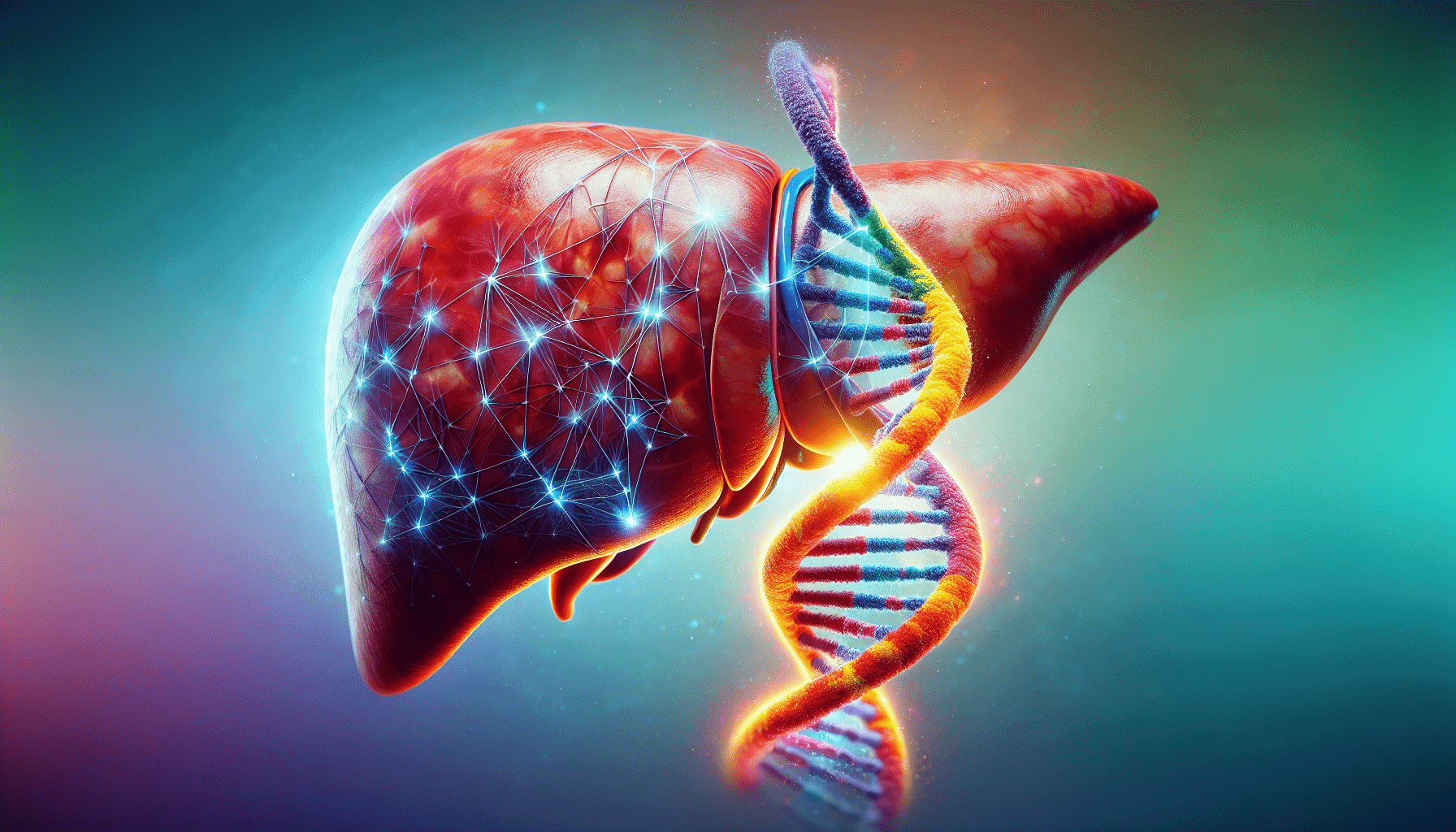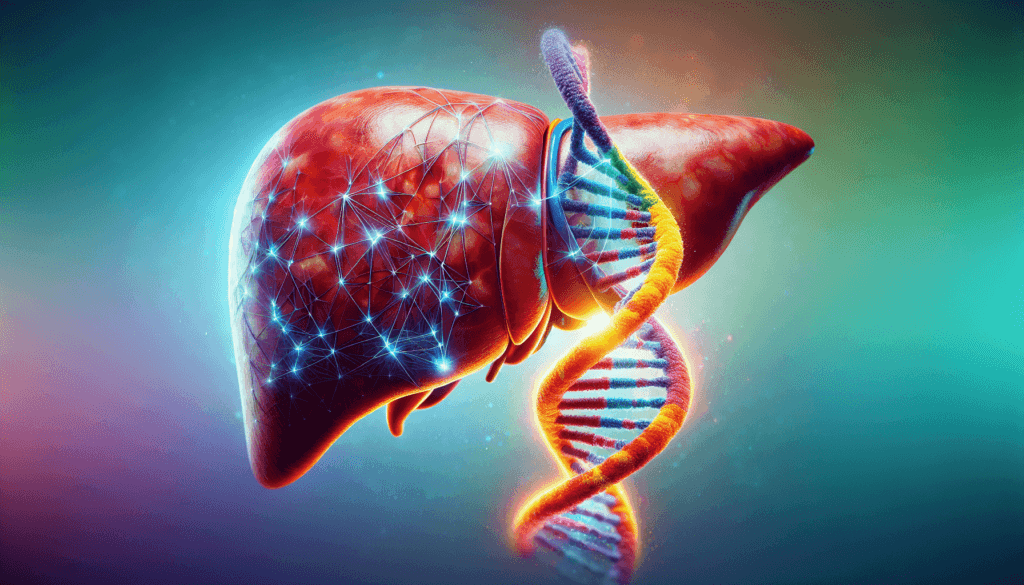Have you ever wondered if the liver health issues that seem to run in your family are hereditary, and if genetics might be playing a role? You’re not alone in this curiosity. Many people are curious about how much of liver health is influenced by family traits and how much is due to lifestyle or environmental factors. Understanding the genetic underpinnings can be key in making informed decisions about health screenings, preventive measures, and lifestyle changes.
Understanding the Liver and Its Importance
The liver is one of the largest and most vital organs in your body, playing a crucial role in maintaining overall health. It processes nutrients from the food you eat, breaks down toxins, produces bile for digestion, and stores energy in the form of glycogen. Like any other organ, your liver can be affected by various health issues, some of which may be influenced by your genetic makeup.
Functions of the Liver
Your liver performs a variety of essential functions. It detoxifies chemicals and metabolizes drugs, produces proteins important for blood clotting, regulates blood sugar levels, and is crucial for overall metabolic function. These diverse roles underscore why liver health is vital to your overall well-being.
Common Liver Health Issues
Liver health issues can vary widely, ranging from fatty liver disease and hepatitis to cirrhosis or even liver cancer. Some of these conditions can result from lifestyle factors such as alcohol consumption or obesity. However, others might have a genetic component that you’re born with, or that increases your susceptibility to liver diseases.
Genetics: The Blueprint of Your Health
Genetics refers to the study of genes, hereditary traits, and variations in living organisms. Your body contains approximately 20,000 to 25,000 genes, which contribute to various functions, including how your body manages liver health. These genes act like a blueprint, dictating everything from your eye color to your susceptibility to certain diseases.
How Genetics Influence Health
Genetics can influence health in numerous ways. Certain genetic mutations or inheritances can make you more prone to specific health conditions. This influence could manifest directly, such as in inherited disorders, or indirectly by increasing susceptibility to conditions that, when combined with environmental factors, result in a health issue.
Genetic Mutations and Liver Disease
Mutations in particular genes can lead to or increase the risk of liver diseases. These mutations might be inherited from one or both parents and can be present from birth, potentially influencing liver health throughout your life. Genetic counseling and testing can sometimes identify these mutations, offering insight into your liver health risk profile.
Hereditary Liver Health Issues
Some liver health issues are directly linked to inherited genetic disorders. These hereditary conditions can lead to significant liver problems if not managed properly. Knowing about them can be crucial for early detection and effective management.
Examples of Hereditary Liver Conditions
Several liver conditions are known to have a genetic basis. Understanding these can help demystify how genetics affect liver health:
-
Hemochromatosis: This condition causes your body to absorb too much iron from the food you eat. Excessive iron is stored in organs, particularly the liver, which can lead to serious liver damage.
-
Wilson’s Disease: This rare genetic disorder leads to the accumulation of copper in vital organs, including the liver, and can cause liver failure if untreated.
-
Alpha-1 Antitrypsin Deficiency: This disorder can lead to liver disease as well as lung disease. The protein alpha-1 antitrypsin helps protect against liver damage, and a deficiency can result in cirrhosis or liver cancer.
-
Glycogen Storage Diseases: These affect how glycogen is stored and used in the liver, leading to issues like hypoglycemia or liver enlargement.
Symptoms to Watch For
Each hereditary liver condition can present unique symptoms or a combination of common symptoms, such as:
- Fatigue
- Jaundice (yellowing of skin and eyes)
- Abdominal pain or swelling
- Dark urine
- Loss of appetite
- Nausea or vomiting
It’s essential to pay attention to these symptoms and consult with a healthcare provider if they persist, particularly if there’s a known family history of liver issues.
Assessing Your Genetic Risk
Determining your genetic risk for liver health issues involves understanding your family history, considering genetic testing, and working closely with healthcare professionals.
Family History
A detailed assessment of your family’s health history is often the first step. If there are recurring liver health issues across generations, it might indicate a hereditary pattern. Collecting health information about your relatives can be insightful when discussing potential risks with a healthcare provider.
Genetic Testing
Genetic testing has advanced significantly, allowing for the identification of mutations associated with various hereditary liver conditions. This testing can be particularly useful if you have a family history of unexplained liver disease. It’s typically done through blood tests and can guide preventive measures or specific management plans.
Interpreting Test Results
Understanding genetic test results can be complex, as not all findings directly indicate the presence of a disease. Often, these results are about predicting risk rather than diagnosing an active condition. Genetic counseling can help interpret the results, offering guidance on any necessary lifestyle modifications or treatments.

Managing Hereditary Liver Health
Even though hereditary factors are beyond your control, there are effective strategies to manage liver health issues influenced by genetics. You can take actionable steps to protect and promote healthier liver function.
Lifestyle Modifications
-
Diet and Nutrition: Adopting a balanced diet rich in fruits, vegetables, whole grains, and lean proteins supports liver function. Limiting alcohol, sugar, and salt can also help in preventing further liver stress.
-
Exercise: Regular physical activity supports overall liver health by maintaining a healthy weight and reducing the risk of conditions like non-alcoholic fatty liver disease.
-
Avoiding Toxins: Be mindful of exposure to chemicals and toxins, including acetaminophen and other medications that can strain your liver.
Medical Interventions
In some cases, medications or procedures may be required to manage liver conditions effectively. Treatment options vary based on the specific condition but can include:
-
Chelation Therapy for conditions like Wilson’s Disease to reduce metal accumulation in the body.
-
Regular Monitoring: Scheduled liver function tests to evaluate your liver’s performance over time.
-
Liver Transplant: In severe cases, a liver transplant may be necessary, especially if hereditary liver disease progresses significantly.
Seeking Medical Advice
Collaborating with healthcare professionals who specialize in liver health or genetics can be beneficial. They can provide personalized advice and management strategies tailored to your genetic predispositions and lifestyle.
The Future of Genetics in Liver Health
The field of genetics and its role in liver health is continually evolving. As researchers learn more about the genetic markers linked to liver conditions, it could lead to more tailored treatments and preventive strategies.
Advances in Genetic Research
Recent advancements in genetic sequencing and bioinformatics are making it possible to pinpoint specific genetic mutations and pathways involved in liver diseases more accurately. This progress could lead to the development of targeted therapies that specifically address genetic causes.
Personalized Medicine
Personalized medicine is an exciting frontier in healthcare and liver disease management. By understanding your unique genetic makeup, treatment plans can be customized to suit your specific needs, potentially improving outcomes and quality of life.
Epigenetics
Epigenetics, the study of how environmental factors can influence gene expression, is another promising area. It suggests that while genetics set the baseline, lifestyle choices and environmental exposures can modify disease risk, offering more control over hereditary health challenges.

Summary
In conclusion, while genetics play a significant role in hereditary liver health issues, there are many ways to manage and mitigate these risks. Understanding your genetic predisposition, making informed lifestyle choices, and seeking appropriate medical advice can empower you to take charge of your liver health. By staying informed and proactive, you can make decisions that support long-term well-being and potentially improve outcomes for hereditary liver conditions in you and your family.

